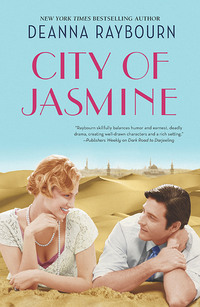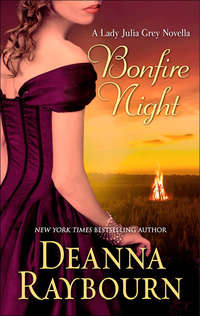
Полная версия
Silent in the Sanctuary
“Oh, it is an extraordinary place, my lady.” She spread her hands, gesturing toward the single great column standing stalwartly in the centre of the room and the tapestries, older and smaller than those in the great drawing room, but depicting the same subject, a boar hunt. “This room alone quite takes my breath away.”
I shrugged. “I suppose it is impressive enough on first viewing. This room used to be the chapter house, where the monks gathered for the abbot to read the Rule of the Order. The vaulting of the ceiling is quite remarkable, although in the family we think it’s frightfully inconvenient. That central column is necessary for support, but it makes it devilishly difficult to arrange the furniture properly. Besides which, the room is draughty and the chimney never draws properly.”
As if to prove my point, a gust of wind roared down the chimney, scattering sparks and ash on the hearth and a few bits of soot on Aunt Dorcas. If the night grew any windier, we should have to dust her.
“Well, perhaps it is not the most convenient of rooms,” she temporised, “but the history, the very ancientness of the stones. I cannot imagine what they have seen. And the tapestries,” she added, nodding toward the stitched panels. “They are enough to rival anything in a museum, I should think.”
Portia joined us then, passing tiny glasses of port that shimmered like jewels in the candlelight.
“If you like the tapestries, you must ask Emma to tell you the story behind them. No one can spin a tale like Emma,” Portia advised Mrs. King, gesturing with her glass to our cousin. “Emma, pay attention, my dear. I am telling tales out of school about you.”
Emma started like a frightened pony, then relaxed, smiling at Portia. “What have you been saying to Mrs. King?”
“That you are a splendid spinner of stories, actually,” I put in. “Mrs. King was admiring the tapestries, and Portia suggested you tell her the story behind them. She is quite right. No one does it as you do.” I thought to raise her confidence a little. She had always been quiet, but there was a new shyness in her that troubled me. I felt Emma was in danger of becoming a sort of recluse, particularly now that Lucy was marrying. Emma had always lavished all of her attention on Lucy, and I wondered what would become of her once Lucy became Lady Eastley. It was to be hoped Lucy would repay her many kindnesses with a home when it was in her power to provide it. Emma could not be happy governessing in the wilds of Northumberland. It would be a poor showing on Lucy’s part to leave her there.
“Come, Scheherezade, tell us a tale,” I coaxed.
Emma flushed a little, not prettily as Mrs. King did, but a harsh red stain that tipped her nose and ears.
“If you really think that I should,” she said, looking hesitantly at Lucy.
“You must,” Lucy said firmly, and we added our voices to the chorus, insisting she take a chair nearer to the fire. She seated herself, turning so the light threw her face in sharp relief as she began to speak.
THE SIXTH CHAPTER

Her voice was ever soft, Gentle, and low, an excellent thing in a woman. —KING LEAR
“The story begins long ago,” Emma related, her voice soft. We gathered around her, skirts billowing over each other like blowsy roses in a country garden. Aunt Dorcas had nodded off in her chair, and her little snores punctuated the tale. Emma paused and took a breath, heightening our anticipation.
“This abbey was once the home of an order of monks, holy men who passed their lives in contemplation and good works. They tended the crops and the flocks, minding both the animals and the souls of men, and they were much loved. But then Henry VIII directed his lustful gaze at Anne Boleyn, and the monks were doomed. During the Dissolution, these lands were taken from them, and they were cast out of this holy place to make their way in the world, penniless and without friends. One of them, the elderly abbot, who had known only this place as his home since boyhood, cursed it as he left, calling upon the very stones them selves to witness the injustice visited upon his order. He conjured a curse against the new owner, a courtier of the king’s, crying out that the man should not live out a year in his ill-gotten home.”
She paused again and I glanced at Mrs. King, not surprised to see her spellbound expression. Emma had always been an excellent storyteller. During their Easter visits we frequently abandoned our books and games and insisted she spin us tales instead. She always demanded a trinket for her troubles, but her stories were so enthralling we never minded parting with a doll or pair of shoes as the price of an afternoon’s entertainment. I turned back to her, noticing that her eyes were shining now, brightened by her enthusiasm for her story. She would indeed have made a fitting bride for Shahriar, I thought as she picked up her tale.
“The new owner, the Earl March, laughed at the old man, and swept into the Abbey with his young countess. But his bride, a girl of seventeen, was not so insouciant as her lord and master. She feared the old abbot, for she had seen that he was touched with holiness, and every night when she made her prayers she begged God to spare her husband, for theirs was a love match.
“The months stretched on, and the seasons turned, and the young countess began to hope her husband would survive the curse. She doubled her prayers, and spent so much time on her knees that she wore holes into the silk of her gowns. Her husband mocked her, but still she would not cease praying for his deliverance. Until one day, when he grew impatient with her piety, and they quarrelled. To calm his temper he whistled for his horse and his hounds and he rode out to hunt boar. The countess fell to her knees in the chapel, vowing not to rise until her lord returned.”
Emma paused and leaned very slightly closer. “They brought him home the next day, carrying him on a door, broken and bleeding from the tusks of his quarry. He died that night, in agony. His countess, fearing her husband’s spirit could never rest in this place, raised a crypt in the village churchyard and buried him there. And after his funeral, she withdrew to the chapel and began to stitch. For nine years she worked, her fingers bleeding, her hands stiffening until she grew so withered she could no longer put down her needle. She told the story of that fateful hunt in silk and wool, stitching her grief until at last the story was complete.”
Emma raised her eyes to the tapestries, nodding toward the last, a magnificent piece that depicted the broken earl being carried home, his hunter and dogs trailing sadly behind.
“In all those nine years, not a morsel of food passed her lips. Village folk said it was a miracle, that she lived on her grief and her tears, nourishing herself with pain until her task was complete. And as soon as the last stitch was set, she lay down on the floor of the chapel and died. She was buried next to her lord in the crypt, but the tapestries survive to tell us the story. And somewhere in the Abbey, there is still a door, stained with the blood of a proud young nobleman, and no matter how many times the wood is sanded or scrubbed, the blood remains.”
Emma sighed, and in an instant, Scheherezade was gone, and she was my plain little cousin again, her hair too severe, her complexion too sallow for prettiness.
“That was beautiful,” Mrs. King breathed. “What a tragic story, and how wonderfully you tell it.”
Emma smiled. “Words are a cheap entertainment,” she said softly, catching Lucy’s gaze. The two of them exchanged a knowing look, and I wondered how many times Emma’s stories had kept them from despairing. I could well picture them, approaching yet another aunt’s door, hand-in-hand, ready to be taken in with little grace and no warmth. Perhaps Emma’s imagination had warmed them when they were cold, and comforted them when they were sent to bed in strange new rooms, where unfamiliar noises could seem like spectres, and shadows could be goblins.
“Emma, you have always had a great talent, you ought to write a book. Heaven knows I’ve seen people with far less ability make a success of it,” Portia suggested.
Emma shook her head. “Oh, I couldn’t. The notoriety, the attention, I could not bear to be looked at like that, as if I were a circus animal. No, I should far rather keep a little cottage and a flock of chickens. That would suit me quite well.”
“Besides, I mean to keep her quite busy with nieces and nephews very soon,” Lucy put in, bouncing up to embrace her sister. “Cedric has said that I may have Emma with me, to act as my companion, and later as governess to our children. We need never be parted again.” Emma put an arm around her sister and hid her face in Lucy’s neck.
I avoided Portia’s eyes, but I could guess her thoughts well enough. Sir Cedric, a wealthy and important man, had offered his impecunious sister-in-law a post, not a home. It spoke of a meanness in his spirit I could not like. It would have cost him little to keep Emma simply out of kindness. But she would work for her bread.
“To your very fecund future in that case,” Portia proclaimed, raising her glass to Lucy and tactfully ignoring the subject of Emma’s employment. We toasted the bride and spent a pleasant half hour discussing plans for the wedding. Lucy was a happy bride, thrilled with her betrothed, and content to hear our ideas for her nuptials. Our suggestions grew more and more outlandish as the port decanter emptied.
Finally, I rose and stretched and made my excuses. Portia put out her tongue at me.
“You know you are not supposed to retire until the gentlemen have joined us. It is rude to our guests,” she said, putting on her severe elder-sister voice.
I covered my mouth, smothering a yawn. “Would you have me dozing on the sofa in front of them? I think that would be far more uncivil. Besides, poor Mrs. King is drooping in that chair. I think she would like to retire as well, only she is too polite to say it. Is it our fault the gentlemen have clearly lost sight of the time? Mind you poke Aunt Dorcas awake before you retire,” I said with a nod toward the old woman.
Mrs. King protested genteelly, but I bullied her, and I fancied she looked a bit relieved as we quit the drawing room. Aquinas had anticipated me and was lighting chambersticks in the hall.
“My lady,” he said, offering me one. “Mrs. King.”
“Thank you, Aquinas. Good evening.”
He bowed and wished us both a good evening. As we moved toward the great staircase, I caught Mrs. King hiding a yawn behind her hand.
“I do apologise,” she said. “I am simply not accustomed to keeping late hours. It is silly, I know. I live in London and keep city hours. One would have thought coming to the country would mean early to bed and early to rise.”
I gave a little snort of laughter as we started up the staircase. There were great carved panels of wood at the foot to keep the dogs out, or would have done if anyone had ever bothered to close them. A few of the puppies followed us up the stairs, lumbering along sleepily.
“You would do well to take one of the little brutes into bed with you. They haven’t fleas, and the pups will be far cosier than any warming pan,” I advised her.
She nodded, and for an instant her expression clouded.
“Mrs. King? Is everything quite all right?”
She hesitated, her pretty face drawn a little with an emotion I could not identify. Fear, perhaps? “Lady Julia, I do hope you will not think me terribly foolish, but—are there ghosts at the Abbey? I did not like to ask one of the gentlemen, they are so prone to think us ladies silly when we say such things.” She gave me an apologetic little smile, but her lips trembled. “I just thought perhaps if I knew…”
I stroked a wriggling pup. “Well, I suppose there are a few old ghouls running about, and the odd monk here and there, but nothing you need trouble yourself with, my dear. Particularly the monks. Cistercians took vows of silence, you know. Our monks would likely just wave at you. Besides, these stones have been standing for more than seven hundred years. Naturally they would have acquired a spectre or two.”
Her face fell, and for a moment I thought I saw moisture shimmering in her eyes. I would not have thought her so sensitive. I felt a stab of unwilling pity. “You must not worry about such things. I have lived here most of my life, and I have never seen a ghost. I do not think anyone has, not for ages.” I was struck by a sudden thought. “But you have been here for some days. Why does this weigh on you now? Have you seen something?”
She bit her lip and darted a glance around, peering into the shadows at the end of the hall. “Last night,” she whispered. “It was very late, but I was wakeful. I thought I heard a footstep, and yet not a footstep. It seemed to slither past my door. I could not move for a moment, I was quite paralysed with fear. And then, I do not know how I managed it, but I found the courage to open the door.”
She paused, her eyes round. I realised my own heart was beating very fast. Even the puppy had gone quite still under my hand, as if hanging on her every word. “And then I saw it. Or rather the faintest impression of it. A swirl of grey and white, not quite a figure, and yet it was more than just a bit of mist. There was a shape to it. My breath caught in my throat, and it turned then, turned and looked at me, although it had no face.”
“Good God!” I cried. “What did you do then?”
She shrugged. “What could I do? I slammed my door and locked it tightly. I burrowed under the bedclothes until morning. I did not dare to come out until the sun was up. I shall never forget the way it looked right through me.”
I hastened to reassure her. “Mrs. King, I am so very sorry you were frightened. I can only tell you I have never heard of anyone in this house encountering a phantom in the whole of my life. And I have every expectation it will not happen again.”
She smiled, and this time her mouth was firm. “You are very kind to reassure me. I know you will not mention this bit of foolishness to the gentlemen. I should so hate for them to think me foolish.”
“Of course not. If anything else distresses you, you must come to me immediately. I insist. Now, I will wait here while you go to your room to make sure you are comfortably settled. If you require anything at all, just ring the bell. One of the maids will see to it, and I am but a few steps down the corridor in the Red Room. I will see you at breakfast, my dear,” I said.
She bade me good night, and ducked her head shyly, as if embarrassed at her nerves. She clucked at one of the pups to follow her into her room and he did, waving his tail like a jaunty plume. My own puppy started to wriggle, and I gave him a little pat on the bottom to send him on his way. I stared at Mrs. King’s closed door for a long moment, then passed to my room, humming a tuneless song as I went.
Once in my room, I disrobed quickly and attempted with no success to persuade Morag to take Florence again.
“I will not,” she said, tucking my gown into the wardrobe. “She shakes like a poplar.”
“That means she is cold,” I told her in some exasperation. “She wants a little coat.”
“She wants an exorcism,” Morag muttered, slamming the wardrobe door. “If you don’t want nothing else, good night.”
I knew that tone well. It meant that I daren’t want anything else. I climbed up into the bed, stretching my toes toward the warming pan, careful not to touch it.
“Remind me to have a word with Aunt Hermia about your grammar. It is a disgrace.”
She said nothing, but poked up the fire and bobbed an exaggerated curtsey before taking her leave. I regretted my flippancy. Morag might be a creature of the streets, but she had her dignity, and she had worked terribly hard to raise herself from the squalor of her previous life. Her grammar had progressed substantially, and the worst of her brogue had been smoothed into something I could actually understand. It was wrong of me to needle her about it, and I made a mental note to apologise to her in the morning. I was far too cosy to leave my bed to deal with her at present. She had done a masterful job of warming the bed, and from the way Florence was snuggled into her basket, I suspected Morag had lined it with warmed towels. For all her sins, she was a thoughtful creature at times.
“Buone notte, Firenze,” I said, with a nod toward the basket on the hearth. “Good night, Florence.”
Florence growled in return, and I took up a book from the night table, determined to finish it. It was a rather spicy little novel Portia had given me, and I was in agonies of suspense as to whether the beautiful English captive would choose to stay in the harim of the sensual sultan or make her escape with the dashing Spanish buccaneer.
I must have dozed, for when I opened my eyes, the fire had burned down and the book had slipped to the floor. I blinked for a moment, uncertain why I had awakened. Then I heard it, a soft slithering footstep just outside my door. I glanced to the hearth and saw Florence, sitting up in her basket, ears pricked up, lips drawn back.
“Shh,” I soothed her softly. The hands of the clock on the mantel read two minutes past two. I considered the matter carefully. Violante and Charlotte had both been abed by the time I had retired. Portia would have rousted the ladies out of the drawing room and to their beds no later than midnight. I had heard a flurry of doors closing just about that time. So the ladies were accounted for, and even if the gentlemen had decided to play a game of billiards or retire to the smoking room, those rooms were on the opposite side of the Abbey. I thought of Mrs. King, her lips trembling as she spoke of what she had seen.
Конец ознакомительного фрагмента.
Текст предоставлен ООО «ЛитРес».
Прочитайте эту книгу целиком, купив полную легальную версию на ЛитРес.
Безопасно оплатить книгу можно банковской картой Visa, MasterCard, Maestro, со счета мобильного телефона, с платежного терминала, в салоне МТС или Связной, через PayPal, WebMoney, Яндекс.Деньги, QIWI Кошелек, бонусными картами или другим удобным Вам способом.











